An interview of Dr. Keanu Sai by Kale Gumapac, host of the show The Kanaka Express. The interview focuses on Na‘i Aupuni or the Native Hawaiian Convention from a political science, historical and academic standpoint.
https://vimeo.com/143056757

An interview of Dr. Keanu Sai by Kale Gumapac, host of the show The Kanaka Express. The interview focuses on Na‘i Aupuni or the Native Hawaiian Convention from a political science, historical and academic standpoint.
https://vimeo.com/143056757
An interview of Professor Niklaus Schweizer and Ph.D. candidate Lorenz Gonschor from the University of Hawai‘i at Manoa by Kale Gumapac, host of the show The Kanaka Express. The interview is focuses on dispelling the untruths of the Hawaiian Kingdom that is a part of the research and classroom instruction at the University of Hawai‘i at Manoa.
https://vimeo.com/143006284
An interview of Dr. Keanu Sai and Ph.D. candidate Lorenz Gonschor by Dr. Lynette Cruz on Issues that Matter. The subject of the interview focused on the Hawaiian Kingdom as a non-European Power in the nineteenth century and its relationship with Japan.
https://vimeo.com/142326302
 From September 10-12, 2015, fifteen academic scholars from around the world who were political scientists and historians came together to present papers on non-European powers at a conference/workshop held at the University of Cambridge, United Kingdom. Attendees of the conference were by invitation only and the papers presented at the conference are planned to be published in a volume with Oxford University Press.
From September 10-12, 2015, fifteen academic scholars from around the world who were political scientists and historians came together to present papers on non-European powers at a conference/workshop held at the University of Cambridge, United Kingdom. Attendees of the conference were by invitation only and the papers presented at the conference are planned to be published in a volume with Oxford University Press.
The theme of the conference was Non-European Powers in the Age of Empire. These non-European countries included Hawai‘i, Iran, Turkey, China, Ethiopia, Japan, Korea, Thailand, and Madagascar. Dr. Keanu Sai was one of the invited academic scholars and his paper is titled “Hawaiian Neutrality: From the Crimean Conflict through the Spanish-American War.”

Many of these scholars were unaware of the history of the Hawaiian Kingdom and its “full” membership in the family of nations as a sovereign and independent state. What stood out for them was the continued existence of the Hawaiian Kingdom because it was only the government that was illegally overthrown by the United States and not the Hawaiian state, which is the international term for country. The belief that Hawai‘i lost its independence was dispelled and that its current status is a state under a prolonged American occupation since the Spanish-American War.
What was a surprise was that the Hawaiian Kingdom was the only non-European Power to have been a co-equal sovereign to European Powers throughout the 19th century. All other non-European Powers were not recognized as full sovereign states until the latter part of the 19th century and the turn of the 20th century. During this time European Powers imposed their laws within the territory of these countries under what has been termed “unequal treaties.”
Since 1858, Japan had been forced to recognize the extraterritoriality of American, British, French, Dutch and Russian law operating within Japanese territory. According to these treaties, citizens of these countries while in Japan could only be prosecuted under their country’s laws and by their country’s Consulates in Japan called “Consular Courts.” Under Article VI of the 1858 American-Japanese Treaty, it provided that “Americans committing offenses against Japanese shall be tried in American consular courts, and when guilty shall be punished according to American law.” The Hawaiian Kingdom’s 1871 treaty with Japan also had this provision, where it states under Article II that Hawaiian subjects in Japan shall enjoy “at all times the same privileges as may have been, or may hereafter be granted to the citizens or subjects of any other nation.” This was a sore point for Japanese authorities who felt Japan’s sovereignty should be fully recognized by these states.
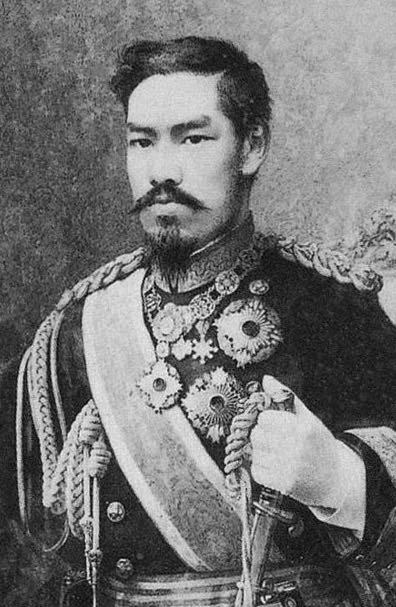 While King Kalakaua was visiting Japan in 1881, Emperor Meiji “asked for Hawai‘i to grant full recognition to Japan and thereby create a precedent for the Western powers to follow.” Kalakaua was unable to grant the Emperor’s request, but it was done by his successor Queen Lili‘uokalani. Hawaiian recognition of Japan’s full sovereignty and repeal of the Hawaiian Kingdom’s consular jurisdiction in Japan provided in the Hawaiian-Japanese Treaty of 1871, would take place in 1893 by executive agreement through exchange of notes.
While King Kalakaua was visiting Japan in 1881, Emperor Meiji “asked for Hawai‘i to grant full recognition to Japan and thereby create a precedent for the Western powers to follow.” Kalakaua was unable to grant the Emperor’s request, but it was done by his successor Queen Lili‘uokalani. Hawaiian recognition of Japan’s full sovereignty and repeal of the Hawaiian Kingdom’s consular jurisdiction in Japan provided in the Hawaiian-Japanese Treaty of 1871, would take place in 1893 by executive agreement through exchange of notes.
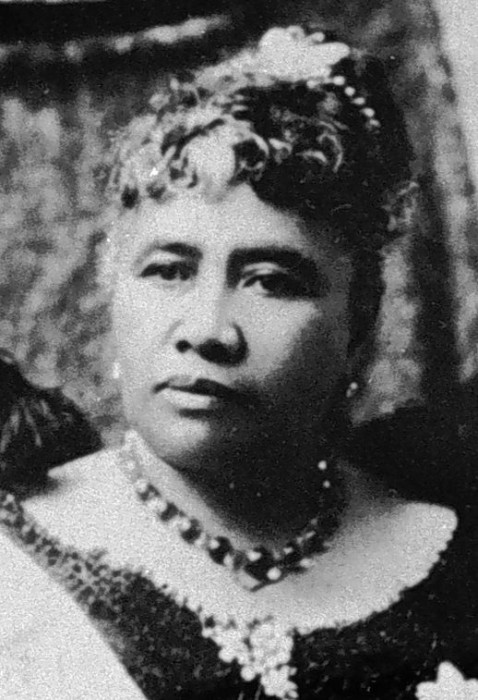 By direction of Her Majesty Queen Lili‘uokalani, R.W. Irwin, Hawaiian Minister to the Court of Japan in Tokyo sent a diplomatic note to Mutsu Munemitsu, Japanese Minister of Foreign Affairs on January 18, 1893 announcing the Hawaiian Kingdom’s abandonment of consular jurisdiction. Irwin stated:
By direction of Her Majesty Queen Lili‘uokalani, R.W. Irwin, Hawaiian Minister to the Court of Japan in Tokyo sent a diplomatic note to Mutsu Munemitsu, Japanese Minister of Foreign Affairs on January 18, 1893 announcing the Hawaiian Kingdom’s abandonment of consular jurisdiction. Irwin stated:
“Her Hawaiian Majesty’s Government reposing entire confidence in the laws of Japan and the administration of justice in the Empire, and desiring to testify anew their sentiments of cordial goodwill and friendship towards the Government of His Majesty the Emperor of Japan, have resolved to abandon the jurisdiction hitherto exercised by them in Japan.
It therefore becomes my agreeable duty to announce to your Excellency, in pursuance of instructions from Her Majesty’s Government, and I now have the honour formally to announce, that the Hawaiian Government do fully, completely, and finally abandon and relinquish the jurisdiction acquired by them in respect of Hawaiian subjects and property in Japan, under the Treaty of the 19th August, 1871.
There are at present from fifteen to twenty Hawaiian subjects residing in this Empire, and in addition about twenty-five subjects of Her Majesty visit Japan annually. Any information in my possession regarding these persons, or any of them, is at all times at your Excellency’s disposal.
While this action is taken spontaneously and without condition, as a measure demanded by the situation, I permit myself to express the confident hope entertained by Her Majesty’s Government that this step will remove the chief if not the only obstacle standing in the way of the free circulation of Her Majesty’s subjects throughout the Empire, for the purposes of business and pleasure in the same manner as is permitted to foreigners in other countries where Consular jurisdiction does not prevail. But in the accomplishment of this logical result of the extinction of Consular jurisdiction, whether by the conclusion of a new Treaty or otherwise, Her Majesty’s Government are most happy to consult the convenience and pleasure of His Imperial Majesty’s Government.”
On April 10, 1894, Foreign Minister Munemitsu, responded, “The sentiments of goodwill and friendship which inspired the act of abandonment are highly appreciated by the Imperial Government, but circumstances which it is now unnecessary to recapitulate have prevented an earlier acknowledgment of you Excellency’s note.”
This dispels the commonly held belief among historians that Great Britain was the first state to abandon its extraterritorial jurisdiction in Japan under the Anglo-Japanese Treaty of Commerce and Navigation, which was signed on July 16, 1894. The action taken by the Hawaiian Kingdom did serve as “precedent for the Western powers to follow.”
Dr. Sai encourages everyone to read his paper “Hawaiian Neutrality: From the Crimean Conflict through the Spanish-American War” that was presented at Cambridge, which covers Hawai‘i’s political history from the celebrated King Kamehameha I to the current state of affairs today, and the remedy to ultimately bring the prolonged occupation to an end.
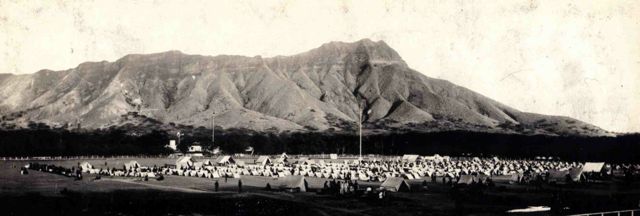
There is a fundamental question regarding the American occupation of the Hawaiian Kingdom that rests on two positions. The first proposition is that the American occupation began on January 17, 1893 at the time of the illegal overthrow of the Hawaiian “government” and ended when American troops were ordered to vacate Hawaiian territory on April 1, 1893 by Presidential investigator James Blount. And that a second American occupation began on August 12, 1898 during the Spanish American War which has lasted to date. The second proposition is that the American occupation began on January 17, 1893 and has remained a belligerent occupation ever since.
What is fundamental and crucial in precisely determining this question of occupation is that occupation triggers the law of occupation, which follows an invasion. When occupation comes to an end so do the laws occupation. This is separate and distinct from the laws and customs of war triggered by an invasion, and the law of occupation that mandates the occupier to provisionally administer the laws of the occupied State under Section III (Articles 42-56) of the 1899 Hague Convention, II, which was later superseded by Section III (Articles 42-56) of the 1907 Hague Convention, IV, and the 1949 Geneva Convention, IV.
At the center of occupation is “effectiveness.” In other words, territory is only occupied when it comes under the effective control of a foreign state’s military. For without effectiveness, the occupier would not be able to carry out the duties and obligations of an occupier under international law in the administration of the laws of the occupied State.
Although an invasion of territory would trigger the laws and customs of war on land, it does not simultaneously trigger the laws of occupation, because the invasion may be transient and ongoing. But when the invader becomes fixed and establishes its authority it triggers the laws of occupation. Article 42 of the 1899 Hague Convention, II, which was considered customary international law at the time, states that, “Territory is considered occupied when it is actually place under the authority of the hostile army. The occupation applies only to the territory where such authority is established, and in a position to assert itself.” Article 42 of the 1907 Hague Convention, IV, is relatively the same except for minor changes in wording.
At first glance, Article 42 refers to the presence of a “hostile army.” So if we were to look at the U.S. troops that were present in Honolulu on January 17, 1893, we need to determine at what point were they in a position of established authority. In his message of December 18, 1893, President Cleveland apprised the Congress that when U.S. troops landed in Honolulu on Monday January 16 it was an invasion. Cleveland stated, “The men, upwards of 160 in all, were supplied with double cartridge belts filled with ammunition and with haversacks and canteens, and were accompanied by a hospital corps with stretchers and medical supplies. This military demonstration upon the soil of Honolulu was of itself an act of war.” Cleveland further states that, “the military occupation of Honolulu by the United States on the day mentioned was wholly without justification, either as an occupation by consent or as an occupation necessitated by dangers threatening American life and property.”
The question, however, from a strictly legal standpoint, did the U.S. troops establish its authority under the law of occupation, and, if so, to what extent did this authority extend regarding territorial control. The troops were occupying a very small defensive position between two buildings—Music Hall and Arian Hall, on Mililani Street. Cleveland explained to the Congress,
 “The United States forces being now on the scene and favorably stationed, the committee proceeded to carry out their original scheme. They met the next morning, Tuesday, the 17th, perfected the plan of temporary government, and fixed upon its principal officers, ten of whom were drawn from the thirteen members of the Committee of Safety. Between one and two o’clock, by squads and by different routes to avoid notice, and having first taken the precaution of ascertaining whether there was any one there to oppose them, they proceeded to the Government building almost entirely without auditors. It is said that before the reading was finished quite a concourse of persons, variously estimated at from 50 to 100, some armed and some unarmed, gathered about the committee to give them aid and confidence. This statement is not important, since the one controlling factor in the whole affair was unquestionably the United States marines, who, drawn up under arms and with artillery in readiness only seventy-six yards distant, dominated the situation.”
“The United States forces being now on the scene and favorably stationed, the committee proceeded to carry out their original scheme. They met the next morning, Tuesday, the 17th, perfected the plan of temporary government, and fixed upon its principal officers, ten of whom were drawn from the thirteen members of the Committee of Safety. Between one and two o’clock, by squads and by different routes to avoid notice, and having first taken the precaution of ascertaining whether there was any one there to oppose them, they proceeded to the Government building almost entirely without auditors. It is said that before the reading was finished quite a concourse of persons, variously estimated at from 50 to 100, some armed and some unarmed, gathered about the committee to give them aid and confidence. This statement is not important, since the one controlling factor in the whole affair was unquestionably the United States marines, who, drawn up under arms and with artillery in readiness only seventy-six yards distant, dominated the situation.”
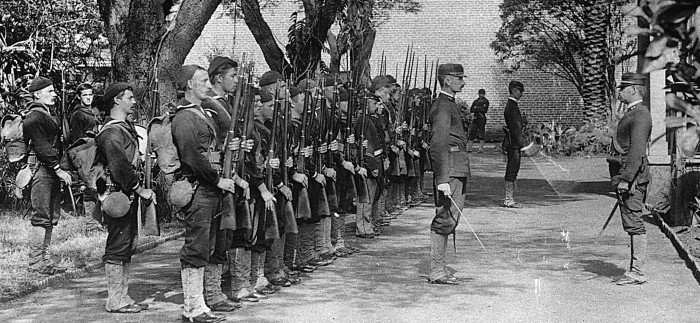
Cleveland was not explaining an occupation that would invoke the law of occupation, but rather an invasion and regime change. But on February 1, 1893, the United States diplomat, John Stevens, declared the Hawaiian Islands to be an American protectorate. So from a position of international law it would be February 1 that would trigger the duty and obligations of the law of occupation because it would appear that this date is where the United States gained effective control of foreign territory and established its authority over it.
However, if you add to the mix the so-called Provisional Government it presents a very different picture. First, the President told Congress that the provisional government was neither a de jure government, which is the lawful government, nor a de facto government, which by definition under international law is a successful revolution. A de facto government has to be in effective control of all the governmental machinery of the government it is revolting against, before it can be considered de facto, because when it is not it is still in a state of revolt and the treason statute would apply. This is why the United States of America was not considered a de facto government until after King George III signed the Treaty of Paris on September 3, 1783, that ended the seven year revolt. When the British colonies declared their independence on July 4, 1776 they became insurgents who committed treason to the British government.
Cleveland addressed this requirement of international law when he stated to the Congress, “That it was not in such possession of the Government property and agencies as entitled it to recognition is conclusively proved by a note found in the files of the Legation at Honolulu, addressed by the declared head of the provisional government to Minister Stevens, dated January 17, 1893, in which he acknowledges with expressions of appreciation the Minister’s recognition of the provisional government, and states that it is not yet in the possession of the station house (the place where a large number of the Queen’s troops were quartered), though the same had been demanded of the Queen’s officers in charge. Nevertheless, this wrongful recognition by our Minister placed the Government of the Queen in a position of most perilous perplexity. On the one hand she had possession of the palace, of the barracks, and of the police station, and had at her command at least five hundred fully armed men and several pieces of artillery. Indeed, the whole military force of her kingdom was on her side and at her disposal, while the Committee of Safety, by actual search, had discovered that there were but very few arms in Honolulu that were not in the service of the Government. In this state of things if the Queen could have dealt with the insurgents alone her course would have been plain and the result unmistakable. But the United States had allied itself with her enemies, had recognized them as the true Government of Hawaii, and had put her and her adherents in the position of opposition against lawful authority.”
The insurgents seized control of the de jure Government of the Queen under the protection of U.S. troops, and thereafter compelled everyone in Government to sign oaths of allegiance. By unlawfully seizing the reigns of government in violation of international law, it does not transform itself into a de jure government. It is a state of emergency born out of a violation of international law. Therefore, if the so-called Provisional Government was not a government at all, but rather enemies of the State who committed high treason under Hawaiian law, then what would it be classified as for the purposes of international law since the United States was its creator. Yes it could be called a puppet of the United States, but this does not mean anything under international law and the law of occupation.
Under international law, the Provisional Government would be classified as an American “militia” illegally established on Hawaiian territory by the United States. Article 1 of the 1899 Hague Convention, II, states, “The laws, rights, and duties of war apply not only to armies, but also to militia and volunteer corps fulfilling the following conditions: 1. To be commanded by a person responsible for his subordinates; 2. To have a fixed distinctive emblem recognizable at a distance; 3. To carry arms openly; and 4. To conduct their operations in accordance with the laws and customs of war.” This Article remained unchanged in the 1907 Hague Convention, IV.
There can be no doubt that the American militia called the Provisional Government began to be in effective control as a result of U.S. intervention, but this effectiveness did not reach its peak on January 17. It was a gradual escalation of effectiveness that began to grow from the city of Honolulu to the outlying government offices on the outer islands. But when the U.S. diplomat established protectorate status on February 1, this could be definitive as to when the law of occupation was triggered. Up to this point it was an invasion and not an occupation for the purposes of international law. Although U.S. troops departed Hawaiian territory on April 1, 1893, the American militia maintained itself through the hiring of mercenaries from the United States.
On July 4, 1894, the American militia changed its name to the Republic of Hawai‘i and continued to have government officers and employees sign oaths of allegiance under threat of American mercenaries who continued to be employed by the insurgency. The proclamation of the insurgents stated, “it is hereby declared, enacted and proclaimed by the Executive and Advisory Councils of the Provisional Government and by the elected Delegates, constituting said Constitutional Convention, that on and after the Fourth day of July, A.D. 1894, the said Constitution shall be the Constitution of the Republic of Hawaii and the Supreme Law of the Hawaiian Islands.”
On April 30, 1900, the U.S. Congress by statute changed the name of the American militia called the Republic of Hawai‘i to the Territory of Hawai‘i. The Territorial Act provided, that “the laws of [the Republic of Hawai‘i] not inconsistent with the Constitution or laws of the United States or the provisions of this Act shall continue in force,” and that “all persons who were citizens of the Republic of Hawaii on August twelfth, eighteen hundred and ninety-eight, are hereby declared to be citizens of the United States and citizens of the Territory of Hawai‘i.”
On March 18, 1959, the U.S. Congress again by statute changed the name of the American militia called the Territory of Hawai‘i to the State of Hawai‘i. The Statehood Act provided that all “Territorial laws in force in the Territory of Hawaii at the time of its admission into the Union shall continue in force in the State of Hawaii, except as modified or changed by this Act or by the constitution of the State, and shall be subject to repeal or amendment by the Legislature of the State of Hawaii.” The State of Hawai‘i today is an American militia and not a government.
Therefore, when we add the American militia that was formerly called the Provisional Government, the Republic of Hawai‘i, the Territory of Hawai‘i and now the State of Hawai‘i, into the equation and not just the physical presence and effective control of U.S. troops whether in 1893 or 1898, international law would recognize the beginning of the belligerent occupation to be February 1, 1893, which continues to date. The American occupation of the Hawaiian Kingdom is the longest ever in the history of international relations that emerged since the Treaty of Westphalia in 1648.
Royal Canadian Mounted Police Responds to War Crime Complaint by Protector of Mauna Kea and Japanese Consulate Receives War Crime Complaint against TMT
HONOLULU (Sep. 11, 2015) – In a letter dated July 7, 2015, attorney Dexter Kaiama was notified by the Superintendent of the Sensitive and International Investigations National Division of the Royal Canadian Mounted Police (RCMP) that their Department of Justice’s War Crime Program had reviewed the evidence of war crimes alleged to have been committed on the summit of Mauna Kea. The RCMP concluded, at that time, it did not have “jurisdiction over the issues brought forward based on the requirements of section 8 of the Crimes Against Humanity and War Crimes act.”
Section 8 states the RCMP would have jurisdiction if the alleged perpetrator “was a Canadian citizen or was employed by Canada in a civilian or military capacity [section 8(a)(i)];” or if the alleged victim “was a Canadian citizen [section 8(a)(iii)].” The July 7, 2015 RCMP response did not refuse jurisdiction on grounds that there is no armed conflict and that Hawai‘i is a part of the United States.
On May 13, 2015, Kaho’okahi Kanuha, who was accompanied by Dr. Keanu Sai, Ph.D., filed a war crime complaint with the RCMP in Ottawa, Canada. On behalf of his client, Attorney Kaiama drafted the complaint for Mr. Kanuha and Dr. Sai provided a report on the status of Hawai‘i as an independent and sovereign state under international law that has been under an illegal and prolonged occupation by the United States. The war crimes that were reported were destruction of property, unlawful confinement, and denial of a fair and regular trial.
On August 12, 2015, Mr. Kaiama submitted a response to the RCMP, where he stated, “While my client is not a Canadian citizen, the alleged perpetrators of war crimes committed against him stemming from the unlawful arrest and confinement of his person on the summit of Mauna Kea does fulfill the requirement under section 8(a)(i). This section provides that persons outside of Canada may be prosecuted for war crimes if they were ‘employed by Canada in a civilian or military capacity.’”
The August 12, 2015 response provided that “TMT hired the Honolulu based law firm Watanabe Ing LLP to represent them in Hawai‘i and is primarily responsible for the war crimes committed against my client by orchestrating and ordering the unlawful detainment carried out by State of Hawai‘i enforcement officers,” and that “James Douglas Ing is the primary attorney in charge of TMT matters on the summit of Mauna Kea.” The submitted response also identified others employed in a civilian capacity by the Canadian component of TMT, “the CEO and President of Goodfellow Bros, Inc., J. Stephen Goodfellow, and Chad Goodfellow, respectively, who was hired as the primary contractor for construction of the telescope on the summit of Mauna Kea. Other civilians included are the employees of Goodfellow, Inc.”
In his response, Mr. Kaiama also identified additional perpetrators meeting the requirements of Section 8 of the Canadian Crimes Against Humanity and War Crimes Act including those “individuals operating in a military capacity, and by direction of Douglas Ing in a civilian capacity, include, State of Hawai‘i armed force Governor David Ige, Attorney General Doug Chin, Deputy Attorney Generals Linda Chow and Julie China, and Director of the Department of Land and Natural Resources Suzanne D. Case, Hawai‘i County Police Officer Captain Richard Sherlock, Lieutenant DareenHorio, Supervising Officer Nelson Acob, Reporting Officer James Pacheco, and arresting Officer Kelsey K. Kobayashi.”
On August 24, 2015 Martin Bedard, Inspector in Charge of the War Crimes Section in Ottowa, confirmed receipt of Mr. Kaiama’s August 12, 2015 response “containing additional allegations” and that the Section is would be (“are and will be”) considering the additional allegations contained in said response.
Attorney Kaiama, representing Mr. Kanuha (and additional presently unnamed victims), also filed a complaint with the Japanese Consul General in Honolulu, Hawai’i on August 14, 2015 to report the violation of international laws in the unlawful detention and deprivation his clients rights to a fair and regular trial, and the destruction of public property during occupation carried out by TMT International Observatory, LLC, (TMTIO) upon the summit of Mauna a Wakea.
Through the filed Complaint, the Japanese Consul General was apprised of: (a) the comprehensive analysis of the international armed conflicts between the Hawaiian Kingdom and the United States from January 16, 1893 to April 1, 1893 and the current armed conflict since August 12, 1898; (b) Japan’s partnership in TMTIO through the Natural Institutes of Natural Sciences (NINS); (c) the destruction of public property during occupation upon the summit of Mauna a Wakea, beginning in 1970, and including Japan’s Subaru Telescope built in 1999; and (d) identification of the war crimes committed, and perpetrators of the reported violations.
The Complaint filed with the Japanese Consul General invoked Japan’s obligations to investigate the reported violations and initiate criminal proceedings under Article IV of the 1871 Hawaiian-Japanese Treaty which provides:
“It is hereby stipulated that the Hawaiian Government and its subjects, upon terms and conditions, will be allowed free and equal participation in all privileges, immunities and advantages that may have been or may hereafter be granted by His Majesty the Tenno of Japan, to the Government, citizens or subjects of any other nation.”
Click the following links to download:
CONTACT:
Dexter Kaiama
Email: cdexk@hotmail.com
Cell: (808) 284-5675
From September 10-12, 2015, the United Kingdom’s University of Cambridge’s Centre for Research in the Arts, Social Science and Humanities will be holding an academic conference “Sovereignty and Imperialism: Non-European Powers in the Age of Empire.” From the conference’s website:
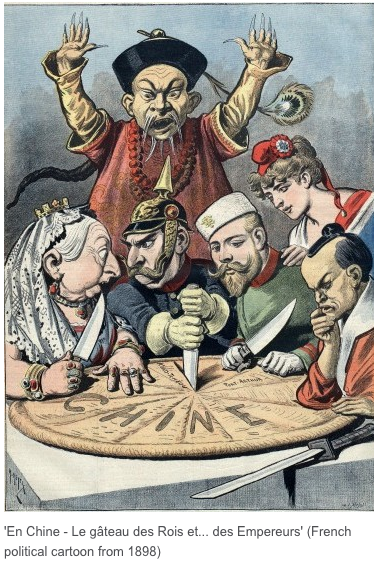 “In the heyday of empire, most of the world was ruled, directly or indirectly, by the European powers. On the eve of the First World War, only a few non-European states had maintained their formal sovereignty: Abyssinia (Ethiopia), China, Japan, the Ottoman Empire, Persia (Iran), and Siam (Thailand). Some others kept their independence for a while, but then succumbed to imperial powers, such as Hawaii, Korea, Madagascar, and Morocco. Facing imperialist incursion, the political elites of these countries sought to overcome their political vulnerability by engaging with the European powers and seeking recognition as equals.
“In the heyday of empire, most of the world was ruled, directly or indirectly, by the European powers. On the eve of the First World War, only a few non-European states had maintained their formal sovereignty: Abyssinia (Ethiopia), China, Japan, the Ottoman Empire, Persia (Iran), and Siam (Thailand). Some others kept their independence for a while, but then succumbed to imperial powers, such as Hawaii, Korea, Madagascar, and Morocco. Facing imperialist incursion, the political elites of these countries sought to overcome their political vulnerability by engaging with the European powers and seeking recognition as equals.
The conference ‘Sovereignty and Imperialism: Non-European Powers in the Age of Empire’ will explore how diplomats, military officials, statesmen, and monarchs of the independent non-European states struggled to keep European imperialism at bay. It will address four major aspects of the relations of these countries with the Western imperial powers: armed conflict and military reform (Panel 1); capitulations, unequal treaties, and subsequent engagement with European legal codes (Panel 2); royalty and courts (Panel 3); and diplomatic encounters (Panel 4). Bringing together scholars from across the world, the conference will be the first attempt to provide comparative perspectives on the non-European powers’ engagement with the European empires in the era of high imperialism.”
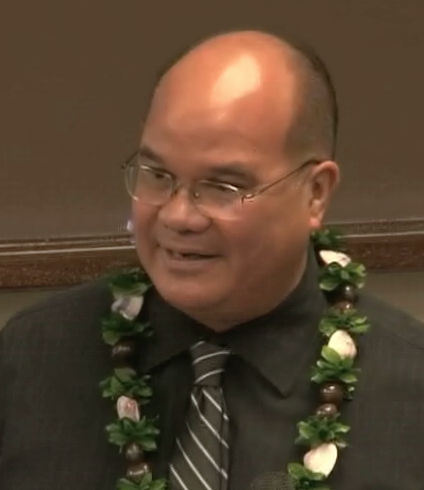 Dr. David Keanu Sai was 1 of 15 scholars from across the world that was invited to present their research and expertise that centers on non-European States. Dr. Sai’s research focuses on the Hawaiian Kingdom as an independent and sovereign state and its continuity to date under an illegal and prolonged occupation by the United States of America since the Spanish-American War. He will be presenting a paper titled “Hawaiian Neutrality: From the Crimean Conflict to the Spanish-American War.” The following is Dr. Sai’s abstract for his paper:
Dr. David Keanu Sai was 1 of 15 scholars from across the world that was invited to present their research and expertise that centers on non-European States. Dr. Sai’s research focuses on the Hawaiian Kingdom as an independent and sovereign state and its continuity to date under an illegal and prolonged occupation by the United States of America since the Spanish-American War. He will be presenting a paper titled “Hawaiian Neutrality: From the Crimean Conflict to the Spanish-American War.” The following is Dr. Sai’s abstract for his paper:
“Only a decade since the Anglo-French proclamation of November 28, 1843 recognizing the Hawaiian Islands as an independent and sovereign State, the Hawaiian Kingdom would find itself being a participant State, during the Crimean conflict, in the abolishment of privateering and the formation of international rules protecting neutral goods. This set the stage for Hawaiian authorities to secure international recognition of its neutrality. Unlike States that were neutralized by agreement between third States, e.g. Luxembourg and Belgium, the Hawaiian Kingdom took a proactive approach to secure its neutrality through diplomacy and treaty provisions by making full use of its global location, which undoubtedly was double-edged. On the one hand, Hawai‘i was a beneficial asylum, being neutral territory, for all States at war in the Pacific Ocean, while on the other hand it was coveted by the United States for its military and strategic importance. This would eventually be revealed during the Spanish-American War when the United States deliberately violated the neutrality of the Hawaiian Islands and occupied its territory in order to conduct military campaigns in the Spanish colonies of Guam and Philippines, which was similar, in fashion, to Germany’s occupation of Luxembourg and the violation of its neutrality when it launched attacks into France during the First World War. The difference, however, is that Germany withdrew after four years of occupation, whereas the United States remained and implemented a policy of ‘denationalization’ in order to conceal the prolonged occupation of an independent and sovereign State. This paper challenges the commonly held belief that Hawai‘i lost its independence and was incorporated into the United States during the Spanish-American War. Rather, Hawai‘i remains a State by virtue of the same positive rules that preserved the independence of the occupied States of Europe during the First and Second World Wars.”
On August 5, 2015, a panel was on Hawai‘i’s history and international law was held at the Wailuku Civic Center, Island of Maui. The panel was moderated by Kale Gumapac and the panelist included Professor Kaleikoa Ka‘eo, University of Hawai‘i Maui College, Dr. Keanu Sai, University of Hawai‘i Windward Community College, Kaho‘okahi Kanuha, teacher at Punanaleo o Kona, and Dexter Ka‘iama, attorney at law. The organizer of the event was Ku‘uipo Naone.
Dr. Mera Lee-Penehira, from the University of Auckland, has this week lodged a criminal complaint with Attorney General Christopher Finlayson QC, under the International Crimes and International Criminal Court Act 2000.
“The U.S. unilaterally seized the islands of Hawai‘i back in 1898 for military interests during the Spanish-American war, and have remained there as illegal occupiers ever since. This is about acknowledging and righting the wrongdoings of the U.S. in Hawai’i”, says Dr. Lee-Penehira.
A recent visit from leading political scientist Dr. Keanu Sai of the University of Hawai’i who met with tribal and political leaders, has brought to the fore the illegal occupation of Hawai’i, and the implications for New Zealand. He states that, “In 2001, the Permanent Court of Arbitration at The Hague, acknowledged that, in the nineteenth century the Hawaiian Kingdom existed as an independent State recognized as such by the United States of America, the United Kingdom and various other States. By virtue of the 1851 treaty between the Hawaiian Kingdom and the British Crown, as well as our connection as peoples of the Pacific, New Zealand citizens have a special relationship with Hawai‘i.”
Dr. Lee-Penehira, has been to Hawai’i on a number of occasions in recent years, and last month visited Mauna a Wakea, a sacred site at the centre of contention between the U.S. government and Native Hawaiians. The planned construction of the world’s largest telescope, the TMT project, on this sacred site, has received much media attention of late and many New Zealand citizens are concerned about this issue.
 Marama Davidson, member of Maori women’s political advocacy group Te Whare Pora Hou states, “Protectors of Mauna a Wakea have been occupying the sacred ancestral mountain on the island of Hawai‘i for over 120 days now, to prevent the construction of this telescope. We stand in solidarity with the protectors in efforts to stop this destruction. This is a direct attack on the physical, spiritual and cultural integrity of the maunga, and the wellbeing of both the environment and people.”
Marama Davidson, member of Maori women’s political advocacy group Te Whare Pora Hou states, “Protectors of Mauna a Wakea have been occupying the sacred ancestral mountain on the island of Hawai‘i for over 120 days now, to prevent the construction of this telescope. We stand in solidarity with the protectors in efforts to stop this destruction. This is a direct attack on the physical, spiritual and cultural integrity of the maunga, and the wellbeing of both the environment and people.”
In lodging the complaint Dr Lee-Penehira is invoking her right as a New Zealand citizen under the 1851 treaty, “We need to challenge everything the U.S. government does in Hawai‘i, because on the basis of law, it is quite simply wrong. The historical documentation is clear, that the Hawaiian Kingdom continues to exist under an illegal occupation by the U.S. and that the laws of occupation must be complied with. As a victim of war crimes committed in Hawai‘i, this cannot be allowed to continue to take place with impunity.”
According to the complaint, Dr. Lee-Penehira states that she has suffered grave harm and calls upon the New Zealand Attorney General to “initiate an immediate investigation into the private organization called the State of Hawai‘i for the war crime of pillaging under the guise of taxation in accordance with 11(2)(b) of the International Crimes and International Criminal Court Act 2000 and fraud. The so-called taxes were collected under what the State of Hawai‘i calls a General Excise Tax (GET) at 4.712% while on the island of O‘ahu that includes a 0.546% “County Tax” and 4.166% on the other islands, and a Transient Accommodations Tax, also called a Hotel Room Tax, at 9.25%. The County Tax is deposited with the City and County of Honolulu, Island of O‘ahu.”
She also states in her complaint, “When a car is rented at the State of Hawai‘i’s Honolulu International Airport, there is a State of Hawai‘i GET at 4.712%, a Highway Surcharge at $3.00 a day, a Vehicle Registration fee between $0.35 and $1.45 a day, and an Airport Concession Recovery Tax at 11.1%. Except for the GET, the revenues collected for rental cars are deposited with the State of Hawai‘i Department of Transportation—Highway and Airport Divisions. Although the GET is levied on businesses for doing business in Hawai‘i, the State of Hawai‘i allows these businesses to pass those extra taxes on to the consumer of all goods in Hawai‘i.”
The alleged war crimes at the centre of the complaint include both unlawful taxation by the State of Hawai‘i, and the destruction of property by the State of Hawai’i for allowing the construction of telescopes on the summit of Mauna a Wakea.
Ms. Davidson supports the complaint saying, “These allegations of war crimes committed in Hawai‘i are very serious, and if true will have a profound effect on all New Zealanders as well as the Trans Pacific Partnership negotiations that are ironically taking place this week in Hawai‘i. It is now incumbent on New Zealand authorities to either prove that the Hawaiian Kingdom does not exist under international law and that there is no Hawaiian-British treaty, or initiate a criminal investigation into the allegations of war crimes committed against a New Zealand citizen.”
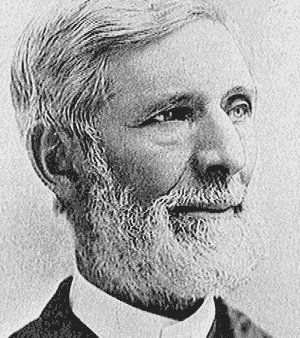 On November 20, 1892, U.S. Diplomat John Stevens assigned to Hawai‘i stated in a confidential dispatch to U.S. Secretary of State John Foster, we must “Americanize the islands, assume control of the ‘Crown lands,’ dispose of them in small lots for actual settlers and freeholders for the raising of coffee, oranges, lemons, bananas, pineapples, and grapes, and the result soon will be to give permanent preponderance to a population and a civilization which will make the islands like southern California, and at no distant period convert them into gardens and sanitariums, as well as supply stations for American commerce, thus bringing everything here into harmony with American life and prosperity. To postpone American action many years is only to add to present unfavorable tendencies and to make future possession more difficult.”
On November 20, 1892, U.S. Diplomat John Stevens assigned to Hawai‘i stated in a confidential dispatch to U.S. Secretary of State John Foster, we must “Americanize the islands, assume control of the ‘Crown lands,’ dispose of them in small lots for actual settlers and freeholders for the raising of coffee, oranges, lemons, bananas, pineapples, and grapes, and the result soon will be to give permanent preponderance to a population and a civilization which will make the islands like southern California, and at no distant period convert them into gardens and sanitariums, as well as supply stations for American commerce, thus bringing everything here into harmony with American life and prosperity. To postpone American action many years is only to add to present unfavorable tendencies and to make future possession more difficult.”
After seizing the Hawaiian Islands during the Spanish-American War, the United States initiated a formal policy of denationalization through Americanization throughout the Hawaiian Kingdom’s public schools system. Private schools followed the policy. In 1906, the formal policy was initiated to not only obliterate the national consciousness of the Hawaiian Kingdom in the minds of the children, but to also conceal the blatant violation of Hawai‘i’s sovereignty as a neutral state and the international law of occupation. This program was called “Programme for Patriotic Exercises in the Public Schools.” The purpose of the program was to inculcate American patriotism in the minds of the children and forced them to speak English and not Hawaiian.
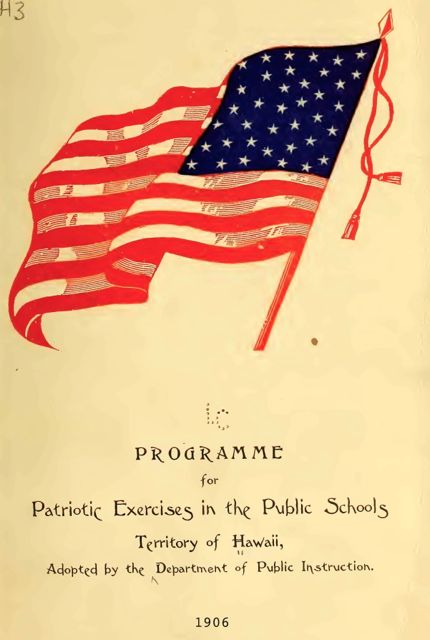
According to the Programme, “The teacher will call one of the pupils to come forward and stand at one side of the desk while the teacher stands at the other. The pupil shall hold an American flag in military style. At second signal all children shall rise, stand erect and salute the flag, concluding with the salutation, ‘We give our heads and our hearts to God and our Country! One Country! One Language! One flag!’”
In 1907, Harper’s Weekly magazine covered the Americanization taking place at Ka‘ahumanu and Ka‘iulani Public Schools, which has students from the first to eighth grade. When the reporter visited Ka‘iulani Public School, he documented the policy being carried out and took a picture of the 614 school children saluting the American flag. He wrote:
“At the suggestion of Mr. Babbitt, the principal, Mrs. Fraser, gave an order, and within ten seconds all of the 614 pupils of the school began to march out upon the great green lawn which surrounds the building. Hawaii differs from all our other tropical neighbors in the fact that grass will grow here. To see beautiful, velvety turf amid groves of palms and banana trees and banks of gorgeous scarlet flowers gives a feeling of sumptuousness one cannot find elsewhere.
Out upon the lawn marched the children, two by two, just as precise and orderly as you can find them at home. With the ease that comes of long practice the classes marched and countermarched until all were drawn up in a compact array facing a large American flag that was dancing in the northeast trade-wind forty feet above their heads. Surely this was the most curious, most diverse regiment ever drawn up under that banner—tiny Hawaiians, Americans, Britons, Germans, Portuguese, Scandinavians, Japanese, Chinese, Porto-Ricans, and Heaven knows what else.
‘Attention!’ Mrs. Fraser commanded.
The little regiment stood fast, arms at sides, shoulders back, chests out, heads up, and every eye fixed upon the red, white, and blue emblem that waved protectingly over them.
‘Salute!’ was the principal’s next command.
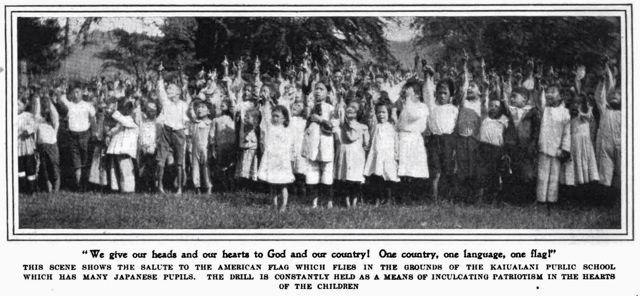
Every right hand was raised, forefinger extended, and the six hundred and fourteen fresh, childish voices chanted as one voice:
‘We give our heads and our hearts to God and our Country! One Country! One Language! One Flag!’
The last six words were shot out with a force that was explosive. The tone, the gesture, the gaze fixed reverently upon the flag, told their story of loyal fervor. And it was apparent that the salute was given as spontaneously and enthusiastically by the Japanese as by any of the other children. There were hundreds of them in the throng, and their voices rang out as clearly as any others, their hands raised in unison. The coldest clod of a man who sees the children perform this act of reverence must feel a tightening at the throat, and it is even more affecting to see these young atoms from all the world actually being fused in the crucible from which they shall issue presently as good American citizens.”
Under customary international law, Americanization is a war crime of attempting to denationalize the inhabitants of an occupied territory. Germans and Italians were prosecuted for the same war crime after World War II for implementing a systematic plan of Germanization and Italianization in occupied territories.
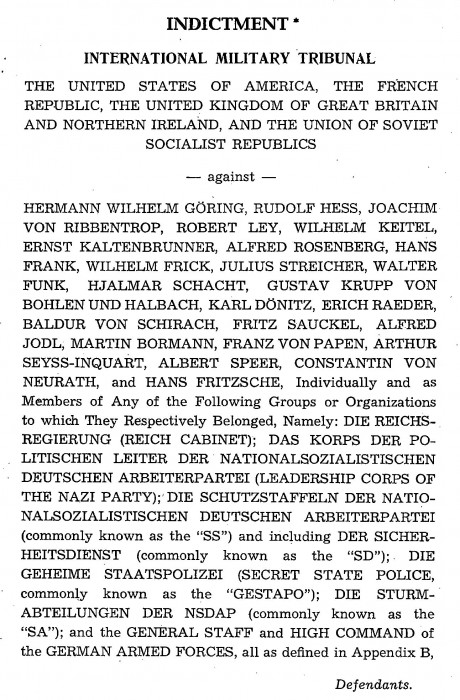

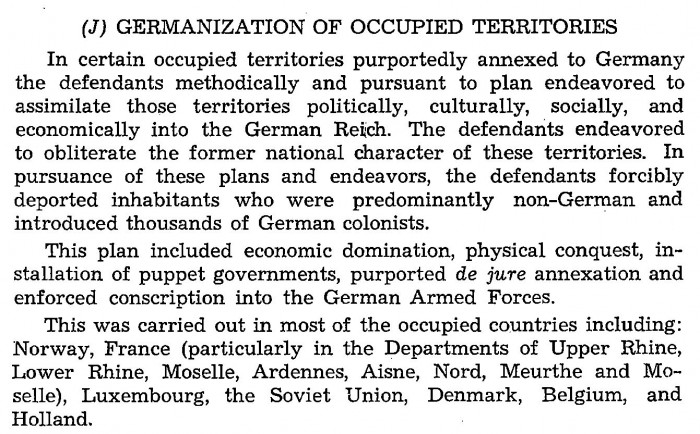
Since the program began, Americanization had become so pervasive and institutionalized throughout Hawai‘i, that the national consciousness of the Hawaiian Kingdom was nearly obliterated, but for the institutional recovery of the Hawaiian language and the resurrection of diligent historical research that has begun to uncover the true status of the Hawaiian Kingdom as an independent state under an illegal and prolonged occupation. This revelation is reconnecting Hawai‘i to the international community and its treaty partners regarding the violations of rights and war crimes committed against the citizens and subjects of foreign states who have visited, resided or have done business in the Hawaiian Islands.
 In 1898, Queen Lili‘uokalani, in her autobiography “Hawai‘i’s Story by Hawai‘i’s Queen,” told what was to come. She wrote,
In 1898, Queen Lili‘uokalani, in her autobiography “Hawai‘i’s Story by Hawai‘i’s Queen,” told what was to come. She wrote,
“Oh, honest Americans, as Christians hear me for my down-trodden people! Their form of government is as dear to them as yours is precious to you. Quite as warmly as you love your country, so they love theirs. With all your goodly possessions, covering a territory so immense that there yet remain parts unexplored, possessing islands that, although near at hand, had to be neutral ground in time of war, do not covet the little vineyard of Naboth’s, so far from your shores, lest the punishment of Ahab fall upon you, if not in your day, in that of your children, for ‘be not deceived, God is not mocked.’ The people to whom your fathers told of the living God, and taught to call ‘Father,’ and whom the sons now seek to despoil and destroy, are crying aloud to Him in their time of trouble; and He will keep His promise, and will listen to the voices of His Hawaiian children lamenting for their homes.”

Here’s the trailer of Ua Mau Ke Ea – Sovereignty Endures:
Te Karere New Zealand Television (NZTV) covers the illegal occupation of Hawai‘i by the United States. For the past week Dr. Keanu Sai has been meeting with tribal and political leaders in an act to raise awareness and gain support from Māori and New Zealanders on the illegal occupation of Hawai’i by the United States of America.
During his visit to New Zealand, Dr. Sai has met with Members of Parliament, a Cabinet Minister of the New Zealand government, Political Party Officials, Academics, and Tribal Leaders regarding the prolonged occupation of Hawai‘i by the United States. Dr. Sai brought to their attention the recent decision by the Swiss Federal Criminal Court specifically naming the State of Hawai‘i Governor Neal Abercrombie, Lt. Governor Shan Tsustui, the director of the Department of Taxation Frederik Pablo and his deputy Joshua Wisch, and the CEO of Deutsche Bank, Josef Ackermann.
In these meetings, Dr. Sai explained:
As my fellow countrymen and women are awakening to the stark reality that we’ve been under an illegal and prolonged occupation by the United States since the Spanish-American War, 1898, there are profound economic, legal and political ramifications that transcend Hawai‘i. My country was seized by the United States for military interests, and the belligerent occupation was disguised through lies and effected through a program of denationalization—Americanization—in the schools at the turn of the 19th century.
This revelation is reconnecting Hawai‘i to the international community and its treaty partners regarding the violations of rights and war crimes committed against the citizens and subjects of foreign states who have visited, resided or have done business in the Hawaiian Islands. My country’s treaty partners include Austria, Hungary, Belgium, Denmark, France, Germany, Italy, Japan, Luxembourg, Netherlands, Portugal, Russia, Spain, Switzerland, Sweden, Norway, the United States, and the United Kingdom, to include Antigua and Barbuda, Australia, The Bahamas, Barbados, Belize, Canada, Grenada, Jamaica, New Zealand, Papua New Guinea, Saint Kitts and Nevis, Saint Lucia, Saint Vincent and the Grenadines, Solomon Islands, and Tuvalu, as member states of the Commonwealth Realm.
The State of Hawai‘i has evaded a precise definition of standing in international law because it has pretended to be a government within the territorial borders of the United States, when in fact it is a private organization operating outside of the United States. The U.S. Congress created the State of Hawai‘i in 1959 by a Congressional Act, but since Congress has no extra-territorial effect it could not vest the State of Hawai‘i with governmental powers outside of its territory in an occupied state. According to the laws and customs of war, the State of Hawai‘i is defined as an Armed Force of the United States, which pretends to be a government.
As an Armed Force, the State of Hawai‘i is presently operating from a position of no lawful authority, and everything that it has done and that it will do is unlawful. From the creation and registration of commercial entities, the collection of tax revenues, the conveyance of real estate, to judicial proceedings, the State of Hawai‘i cannot claim to be a government de jure. This has the potential of generating catastrophic economic, legal and political ramifications in foreign countries, and the mandate for some of these countries, which includes New Zealand (International Crimes and International Criminal Court Act 2000), is to prosecute war crimes committed in the Hawaiian Islands under universal jurisdiction.
Her British Majesty Queen Victoria was the first to recognize Hawaiian independence in a joint proclamation with the French on November 28, 1843, and subsequently entered into a Treaty of Friendship, Commerce and Navigation on July 10, 1851. In 1893, my country maintained a Legation in London, and two Consulates in the cities of Auckland and Dunedin, and the United Kingdom maintained a Legation and a Consulate in Honolulu. These Consulates were established in accordance with Article XII of the 1851 Hawaiian-British Treaty, which provides:
“It shall be free for each of the two contracting parties to appoint consuls for the protection of trade, to reside in the territories of the other party; but before any consul shall act as such, he shall, in the usual form, be approved and admitted by the Government to which he is sent; and either of the contracting parties may except from the residence of consuls such particular places as either of them may judge fit to be excepted. The diplomatic agents and consuls of the Hawaiian Islands, in the dominions of Her Britannic Majesty, shall enjoy whatever privileges, exemptions and immunities are, or shall be granted there to agents of the same rank belonging to the most favored nation; and, in like manner, the diplomatic agents and consuls of Her Britannic Majesty in the Hawaiian Islands shall enjoy whatever, privileges, exemptions, and immunities are or may be granted there to the diplomatic agents and consuls of the same rank belonging to the most favored nation.”
The New Zealand Government’s recent creation of the New Zealand Consulate General in Honolulu was established by virtue of Article 16 of the 1794 Treaty of Amity, Commerce and Navigation between Great Britain and the United States, also called the “Jay Treaty,” and not the Hawaiian-British Treaty. Therefore, the New Zealand Consulate in Honolulu stands in direct violation of the Hawaiian-British Treaty, and therefore is unlawful. This year, the Swiss authorities were faced with the same circumstances. In a decision by the Swiss Federal Criminal Court Objections Chamber this year, the Court concluded that the 1864 Hawaiian-Swiss Treaty was not cancelled and that the Swiss Consulate in Honolulu is unlawful. These decisions stemmed from war crime complaints filed with Swiss authorities by a Swiss expatriate residing in Hawai‘i and a Hawaiian subject. I represent both men in these proceedings.
The Court specifically named the CEO of Deutsche Bank and high officials of the State of Hawai‘i as alleged war criminals for committing the war crime of pillaging. Allegations of war crimes can only arise if there is an international armed conflict, and the evidence acquired by the Swiss Attorney General that was provided to the Court clearly established that an international armed conflict does exist between the Hawaiian Kingdom and the United States. According to customary international law, an international armed conflict is not limited to states engaged in hostilities, but also the military occupation of a state’s territory even if it occurred without armed resistance, i.e, Common Article 2, Geneva Conventions.
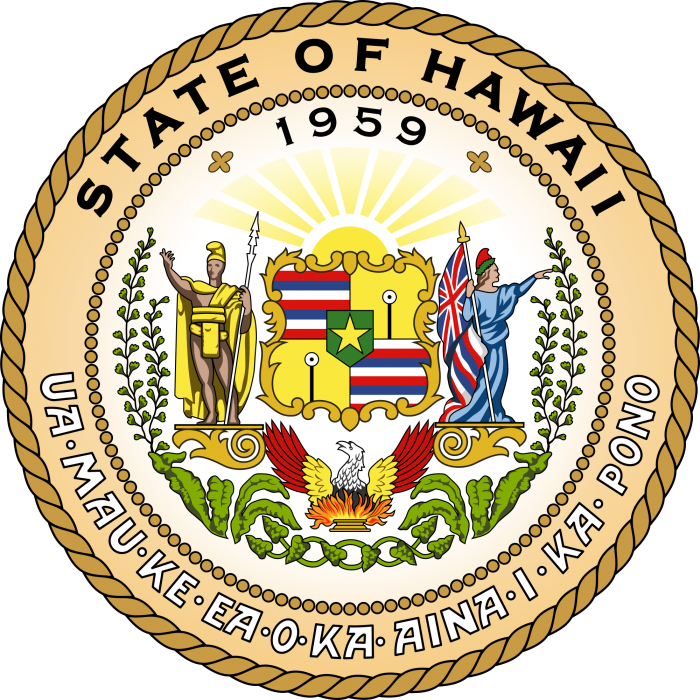 The State of Hawai‘i has evaded a precise definition of standing in international law because it has pretended to be a government within the United States, when in fact it is a private organization outside of the United States. The U.S. Congress created the State of Hawai‘i in 1959 by a Congressional Act, but since Congress is limited to U.S. territory it could not vest the State of Hawai‘i with governmental powers outside of its territory in an occupied state. The State of Hawai‘i is a private organization that pretends to be a government.
The State of Hawai‘i has evaded a precise definition of standing in international law because it has pretended to be a government within the United States, when in fact it is a private organization outside of the United States. The U.S. Congress created the State of Hawai‘i in 1959 by a Congressional Act, but since Congress is limited to U.S. territory it could not vest the State of Hawai‘i with governmental powers outside of its territory in an occupied state. The State of Hawai‘i is a private organization that pretends to be a government.
While the State of Hawai‘i cannot claim to be a government de jure (lawful government) or de facto (government of a successful revolution), customary international law defines it as an Armed Force for the occupying state. Military manuals define Armed Forces as “organized armed groups which are under a command responsible to that party for the conduct of its subordinates (Jean-Marie Henckaerts and Louise Doswald-Beck, Customary International Humanitarian Law, vol. I, 14 (2009).” According to Henckaerts and Doswald-Beck, “this definition of armed forces covers all persons who fight on behalf of a party to a conflict and who subordinate themselves to its command (Id., p. 15),” and that this “definition of armed forces builds upon earlier definitions contained in the Hague Regulations and the Third Geneva Convention which sought to determine who are combatants entitled to prisoner-of-war status (Id.).” Article 1 of the 1907 Hague Convention, IV, provides that
“The laws, rights, and duties of war apply not only to armies, but also to militia and volunteer corps fulfilling the following conditions: (1) To be commanded by a person responsible for his subordinates; (2) To have a fixed distinctive emblem recognizable at a distance; (3) To carry arms openly; and (4) To conduct their operations in accordance with the laws and customs of war.”
The laws and customs of war during occupation applies only to territories that come under the authority of either the occupier’s military or an occupier’s Armed Force, such as the State of Hawai‘i, and that the “occupation extends only to the territory where such authority has been established and can be exercised (1907 Hague Convention, IV, Article 42).” According to Ferraro, “occupation—as a species of international armed conflict—must be determined solely on the basis of the prevailing facts (Tristan Ferraro, Determining the beginning and end of an occupation under international humanitarian law, 94 (no. 885) Int’l Rev Red Cross 133, 134 (Spring 2012).” Although unlawful, it is a fact that the United States created the State of Hawai‘i through congressional action and signed into law by its President, Dwight D. Eisenhower, in 1959. It is also a fact that the United States approved the constitution of the State of Hawai‘i that provides for its organizational structure.
As an Armed Force, the State of Hawai‘i established its authority over 137 islands (“Hawai‘i Facts and Figures” (December 2014), State of Hawai‘i Department of Business, Economic Development & Tourism), “together with their appurtenant reefs and territorial and archipelagic waters (State of Hawai‘i Constitution, Article XV, section 1.” These islands include the major islands of Hawai‘i, Maui, O‘ahu, Kaua‘i, Molokai, Lana‘i, Ni‘ihau, and Kaho‘olawe. It is the effectiveness of the control exercised by the State of Hawai‘i over this territory, as an Armed Force for the United States, which triggers the application of occupation law.
Allegiance to the United States as the Occupying State
The State of Hawai‘i, as an Armed Force, bears its allegiance to the United States where its officials, to include its Governor, take the following oath of office: “I do solemnly swear (or affirm) that I will support and defend the Constitution of the United States, and the Constitution of the State of Hawaii, and that I will faithfully discharge my duties as […] to best of my ability (Id., Article XVI, sec. 4).”
To be commanded by a person responsible for his subordinates
A Governor who is elected by U.S. citizens in Hawai‘i is head of the State of Hawai‘i. The Governor is responsible for the execution of its laws from its legislature and to carry out the decisions by its courts. The Governor is also the “commander in chief of the armed forces of the State and may call out such forces to execute the laws, suppress or prevent insurrection or lawless violence or repel invasion (Id., Article V, sec. 5).” The Governor’s subordinates include all “executive and administrative offices, departments and instrumentalities of the state government (Id., sec. 6).”
To have a fixed distinctive emblem recognizable at a distance
According to its constitution, “The Hawaiian flag shall be the flag of the State (Id., Article XV, sec. 3).”
To carry arms openly
Law enforcement officers of the State of Hawai‘i, to include the Sheriff’s Division, Department of Land and Natural Resources, and the police of the State’s four Counties (Hawai‘i, Maui, Honolulu, and Kaua‘i), all openly carry arms. Also included are the State of Hawai‘i’s Army National Guard and Air National Guard who openly carry arms while in tactical training.
To conduct their operations in accordance with the laws and customs of war
As the Governor is the commander in chief of the State’s Armed Forces, and is responsible for the suppression or prevention of insurrection or lawless violence, as well as repelling an invasion, the State of Hawai‘i is capable of conducting operations in accordance with the laws and customs of war during occupation. The State of Hawai‘i Army and Air National Guard are trained in the laws and customs of war.
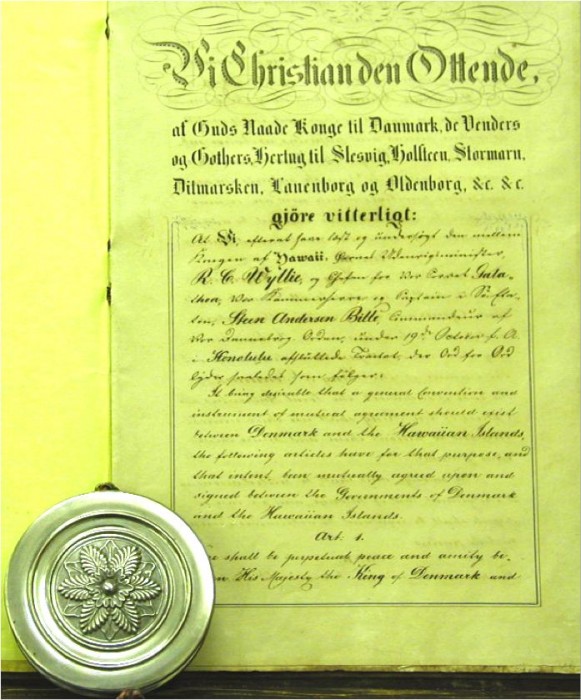 The first friendship treaty the Hawaiian Kingdom entered into as a sovereign state was with Denmark on October 19, 1846. Other friendship treaties followed with Hamburg, succeeded by Germany, (January 8, 1848), the United States of America (December 20, 1849), the United Kingdom (July 10, 1851), Bremen, succeeded by Germany, (March 27, 1854), Sweden-Norway, now separate states, (April 5, 1855), France (September 8, 1858), Belgium (October 4, 1862), Netherlands (October 16, 1862), Luxembourg (October 16, 1862), Italy (July 22, 1863), Spain (October 9, 1863), Switzerland (July 20, 1864), Russia (June 19, 1869), Japan (August 19, 1871), Austria-Hungary, now separate states (June 18, 1875), Germany (March 25, 1879), and Portugal (May 5, 1882). Neither the Hawaiian Kingdom nor any of these states expressed any intention to terminate any of the treaties according to the provisions provided in each of the treaties, and therefore remain in full force and effect.
The first friendship treaty the Hawaiian Kingdom entered into as a sovereign state was with Denmark on October 19, 1846. Other friendship treaties followed with Hamburg, succeeded by Germany, (January 8, 1848), the United States of America (December 20, 1849), the United Kingdom (July 10, 1851), Bremen, succeeded by Germany, (March 27, 1854), Sweden-Norway, now separate states, (April 5, 1855), France (September 8, 1858), Belgium (October 4, 1862), Netherlands (October 16, 1862), Luxembourg (October 16, 1862), Italy (July 22, 1863), Spain (October 9, 1863), Switzerland (July 20, 1864), Russia (June 19, 1869), Japan (August 19, 1871), Austria-Hungary, now separate states (June 18, 1875), Germany (March 25, 1879), and Portugal (May 5, 1882). Neither the Hawaiian Kingdom nor any of these states expressed any intention to terminate any of the treaties according to the provisions provided in each of the treaties, and therefore remain in full force and effect.
These treaties have the “most favored nation” clause, and secure the equal application of commercial trade in the Hawaiian Islands to all treaty partners. These treaties have all been violated by the United States through the unlawful imposition of the Merchant Marine Act (1920)—also known as the Jones Act—that has secured commercial control over the seas to United States citizens, which has consequently placed the citizens of these foreign states at a commercial disadvantage (46 U.S.C. §883-1). The clause is designed
“to establish the principle of equality of international treatment. The test of whether the principle is violated by the concession of advantages to a particular nation is not the form in which such concession is made, but the condition on which it is granted; whether it is given for a price, or whether this price is in the nature of a substantial equivalent, and not a mere evasion (Black’s Law Dictionary 1013 (6th ed. 1990).”
Treaties “are legally binding, because there exists a customary rule of International Law that treaties are binding. The binding effect of that rule rests in the last resort on the fundamental assumption, which is neither consensual nor necessarily legal, of the objectively binding force of International Law (L. Oppenheim, International Law, vol. 1, 794 (7th ed. 1948),” states Oppenheim. “No distinction should be made between more or less important parts of a treaty as regards its execution. Whatever may be the importance or the insignificance of a part of a treaty, it must be executed in good faith, for the binding force of a treaty covers all its parts and stipulations equally (Id., 829).”
Sources of international law are, in rank of precedence: international conventions, international custom, general principles of law recognized by civilized nations, and judicial decisions and the teachings of the most highly qualified publicists of the various nations (Statute of the International Court of Justice, Article 38). The legislation of every state, to include the United States of America and its Congress, is not a source of international law, but rather a source of municipal law of the state whose legislature enacted it. In The Lotus, the International Court stated, “Now the first and foremost restriction imposed by international law upon a State is that—failing the existence of a permissive rule to the contrary—it may not exercise its power in any form in the territory of another State (Lotus, PCIJ, ser. A no. 10, 18 (1927).” According to Crawford, derogation of this principle will not be presumed, which he refers to as the Lotus presumption (James Crawford, The Creation of States in International Law 34 (2d ed. 2006).
Since Congressional legislation, whether by a statute or a joint resolution, has no extraterritorial effect, it is not a source of international law, which “governs relations between independent States (Lotus, at 18).” The U.S. Supreme Court has always adhered to this principle. The U.S. Supreme Court stated,
“Neither the Constitution nor the laws passed in pursuance of it have any force in foreign territory unless in respect of our own citizens, and operations of the nation in such territory must be governed by treaties, international understandings and compacts, and the principles of international law (United States v. Curtiss Wright Export Corp., 299 U.S. 304, 318 (1936).”
The Supreme Court also concluded, “The laws of no nation can justly extend beyond its own territories except so far as regards its own citizens. They can have no force to control the sovereignty or rights of any other nation within its own jurisdiction (The Apollon, 22 U.S. 362, 370 (1824).” Adhering to this principle, the U.S. Attorney General’s Office of 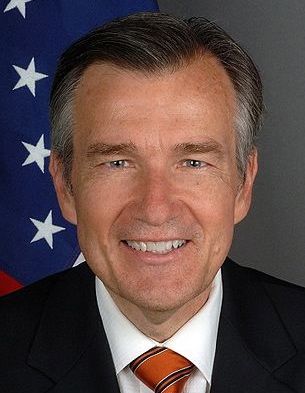 Legal Counsel was befuddled by Congress’s annexation of the Hawaiian Islands by a joint resolution. In a 1988 legal opinion, the Office of Legal Counsel addressed the annexation of the Hawaiian Islands by joint resolution. Douglas Kmiec, Acting Assistant Attorney General, authored the memorandum for Abraham D. Sofaer, legal advisor to the U.S. State Department. After covering the limitation of Congressional authority and the objections made by members of the Congress, Kmiec concluded,
Legal Counsel was befuddled by Congress’s annexation of the Hawaiian Islands by a joint resolution. In a 1988 legal opinion, the Office of Legal Counsel addressed the annexation of the Hawaiian Islands by joint resolution. Douglas Kmiec, Acting Assistant Attorney General, authored the memorandum for Abraham D. Sofaer, legal advisor to the U.S. State Department. After covering the limitation of Congressional authority and the objections made by members of the Congress, Kmiec concluded,
“Notwithstanding these constitutional objections, Congress approved the joint resolution and President McKinley signed the measure in 1898. Nevertheless, whether this action demonstrates the constitutional power of Congress to acquire territory is certainly questionable. … It is therefore unclear which constitutional power Congress exercised when it acquired Hawaii by joint resolution. Accordingly, it is doubtful that the acquisition of Hawaii can serve as an appropriate precedent for a congressional assertion of sovereignty over an extended territorial sea (Douglas W. Kmiec, Legal Issues Raised by Proposed Presidential Proclamation To Extend the Territorial Sea, 12 Opinions of the Office of Legal Counsel 238, 252 (1988).”
This 1988 opinion clearly undermines the claim of sovereignty over the Hawaiian Islands by the United States. If the Attorney General’s Office of Legal Counsel is “unclear” as to the authority of Congress to annex the Hawaiian Islands, it surely cannot be considered as a valid demonstration of legal title by the United States as the successor to the Hawaiian Kingdom under international law. If the United States is not the successor, then the presumption of the Hawaiian Kingdom’s existence as an independent state is maintained.